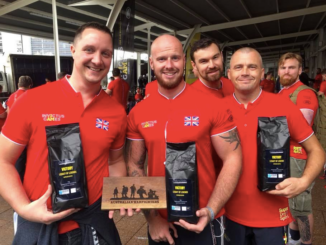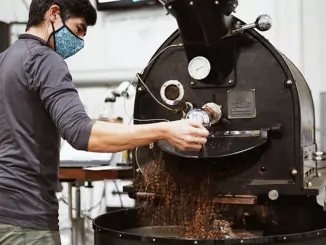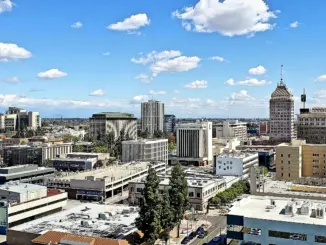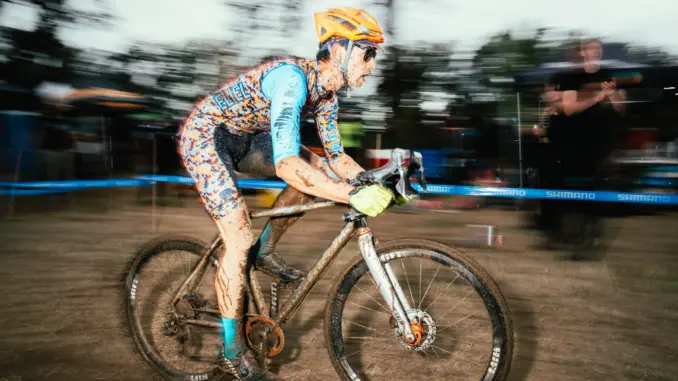
We conclude our interview with cycling coach and champion coffee roaster Andrew Coe.
BY VASILEIA FANARIOTI
SENIOR ONLINE CORRESPONDENT
Photos courtesy of Andrew Coe
In part one of our interview with Andrew Coe, the 2023 U.S. Roaster Champion, he described his background in mathematics, and how he prepares for work both in the roasting world and as a cycling coach. In part two today, Andrew—who sources and roasts coffee for Elevator Coffee in Portland, Ore.—discusses his approach to the competition, his upcoming trip to the World Coffee Roasting Championship, and much more.
Barista Magazine: What was it like to win the championship, and how do you plan on continuing that success in future competitions?
Andrew Coe: It was pretty unbelievable to be able to do it here in Portland. The reason I did my first USCC prelims competition back in 2020 was in hopes of competing in the finals in Portland 2020 (that got canceled due to COVID).
So to have the championships here this year felt like things had come full circle, but I’d also gotten the experience of a full year of competition prior, which really helped preparations. I was confident that I could finish in the top five again, but to win is so very hard. You can do everything right and definitely still need some good luck to win because everyone else in the finals is just as talented and experienced (or maybe more so).
As far as future success, that is never guaranteed. I do have a lot of competition experience outside of coffee, so I think that really helps the mental side of the competition. I also have a pretty strong competitive drive, and that helps me make preparation time ahead of the competition.
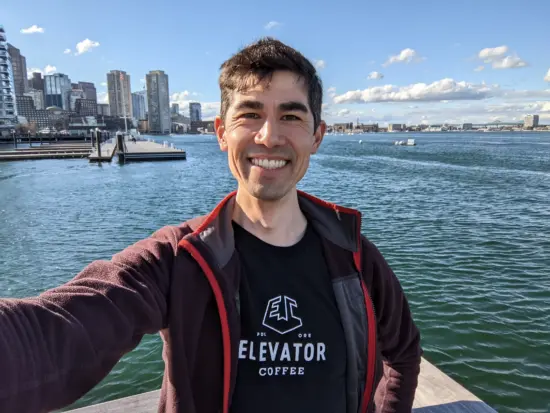
You’re now preparing for the World Coffee Roasting Championship—how are you getting ready for that competition?
I’m trying to do all my homework. For Roasters, we don’t compete until November, and the 2023 rules for worlds haven’t been posted yet. I’m speaking with Nick Berardi (2022 champion) to learn what his experience was like last year. I’d love to get some time practicing on the Giesen machine that we have to do production roasts on sometime. The biggest difference between USA championships and worlds is at our finals we only had to roast one coffee. At worlds, you roast one coffee as a single origin, but then also have to create and roast a blend of compulsory coffees.
What do you feel is the most important part of the roasting process?
I think it’s all about making connections between what methods you use to roast the coffee to the tastes and aromas you are creating in the cup. For me, the only way to do this is to take really good notes while roasting and tasting.
It’s hard to separate out any one variable in roasting and say that is the singular most important element in the roasting process. Part of the reason roasting is hard is that the process is made up of dependent variables, which is to say, changing one part of the process is never in a vacuum; it always has downstream effects.
When did you first become interested in cycling, and what was the process like for achieving success at the amateur level?
I was a runner in high school and college. I started cycling in graduate school after I got a pretty bad knee injury from running but could ride bikes with no pain. I joined the Oregon State University cycling team and have been racing since that time.
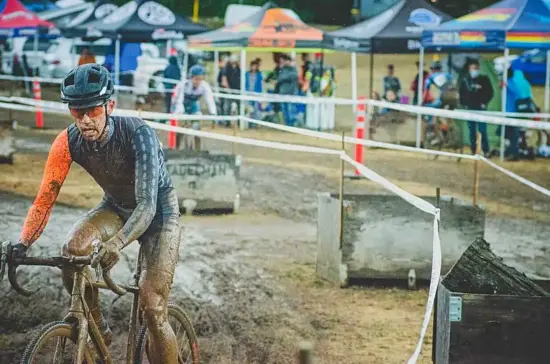
Succeeding in bike racing is similar to succeeding in coffee competitions: improving little by little, day by day, learning all the time. Do your best at the things under your control (including your work ethic and attitude), and don’t worry too much about things you can’t control (and sometimes that is a lot). Some people have incandescent natural talent, but for the 99% rest of us, it’s about showing up consistently and just putting in the work.
Do you have any advice for aspiring roasters who want to compete?
Competitions are one of the best ways to learn more about roasting. I’d encourage folks who are interested but afraid they might not do well to still try. The outcome of placing really doesn’t matter much as long as you learn things through the process.
I particularly like the format of prelims and qualifiers because everyone gets to roast on their own equipment. Then you have to give a presentation about how you roasted the way you did and how that connects to the flavors you were getting. And then, finally, you get to serve your coffee to the other participants and attendees.
This year I sat through most of the presentations at qualifiers and it was great; you get to hear 20-30 people all think about the coffee in a unique way, and then you get to taste the coffee too! Every year I learn things in these presentations.
ABOUT THE AUTHOR
Vasileia Fanarioti (she/her) is a senior online correspondent for Barista Magazine and a freelance copywriter and editor with a primary focus on the coffee niche. She has also been a volunteer copywriter for the I’M NOT A BARISTA NPO, providing content to help educate people about baristas and their work. You can follow her adventures at thewanderingbean.net.


